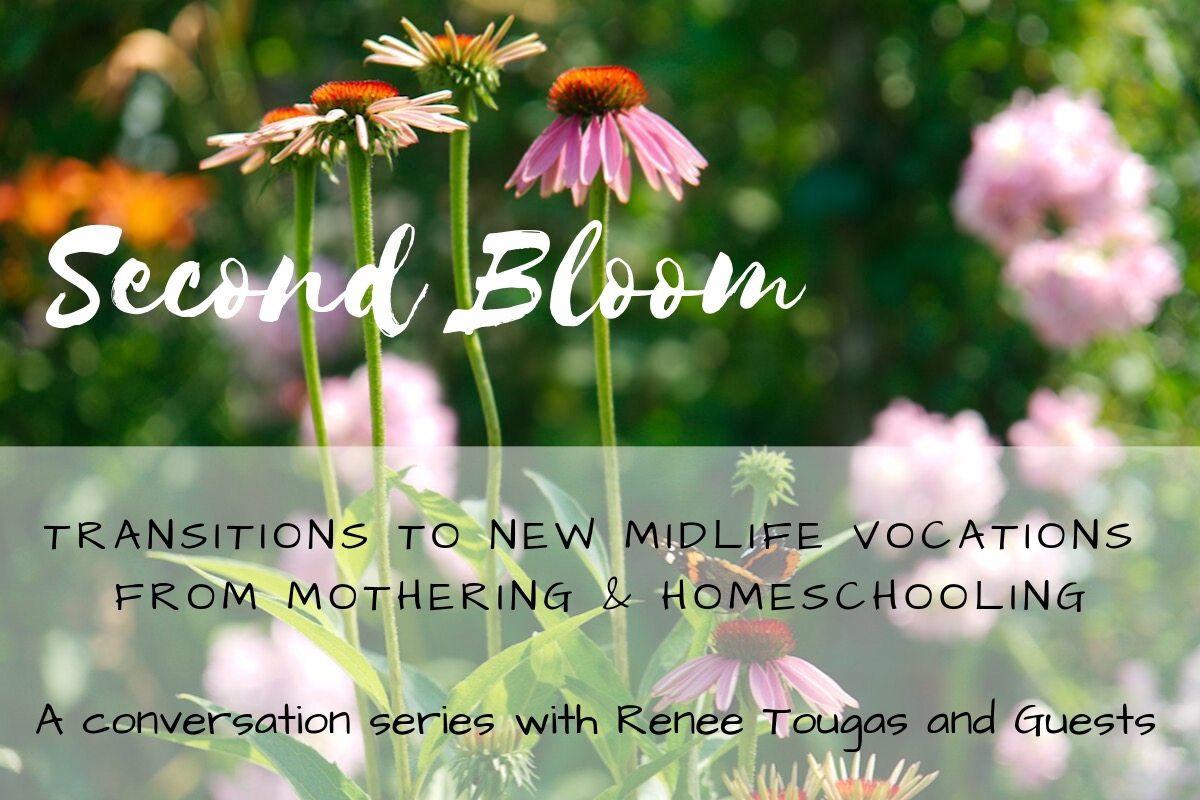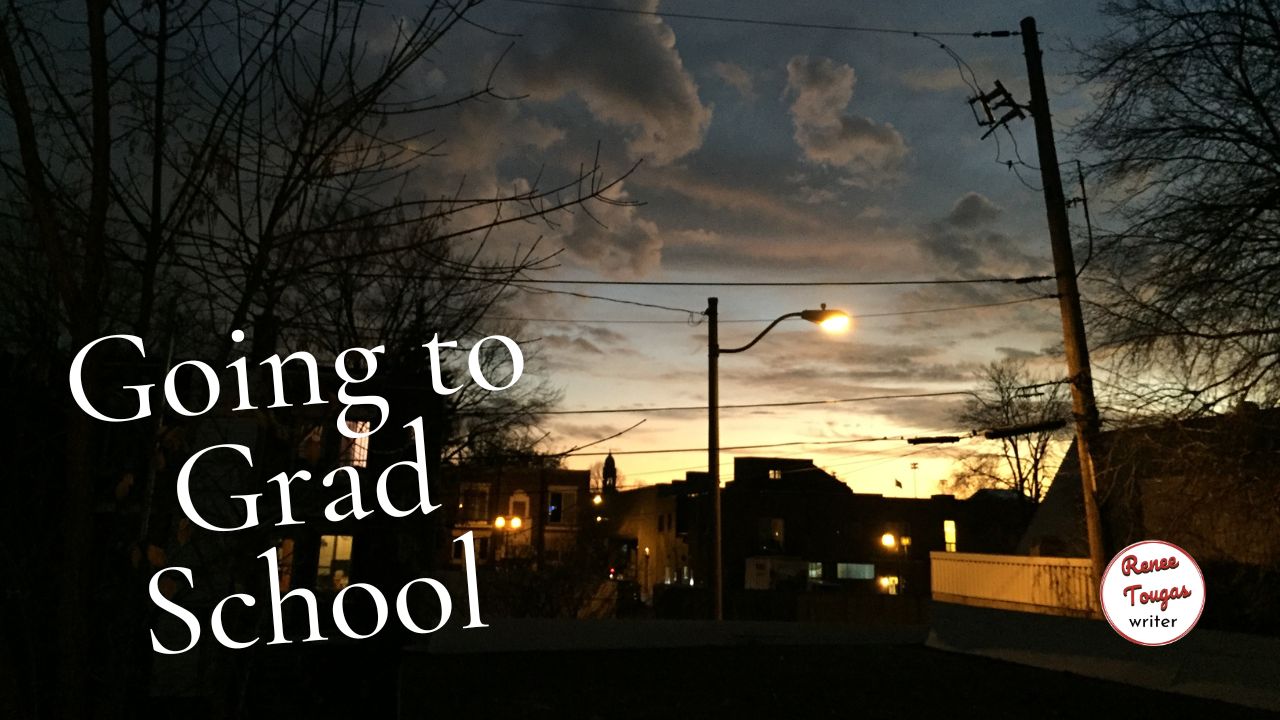Get posts by email
The year I find my fire
December 17, 2022
↓ Audio recording of this post ↓
This piece is the result of a gift I gave myself for my 47th birthday earlier this month. The gift of time to reflect and write about where I’m at and where I’ve come from. What’s changed and grown in me, what’s stayed the same.
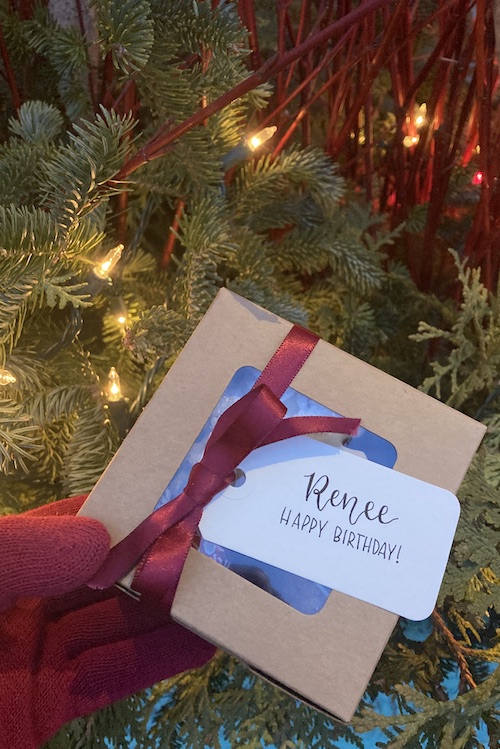
2022 was an amazing year for me and I’ll let you read why. Without sounding cliché or dramatic, I am coming into my power and purpose.
I was told this would happen in midlife, but I’m a natural skeptic. I wasn’t sure how it would happen, and if it would happen, because maybe “all the King’s horses and all the King’s men/Couldn’t put Humpty together again” was actually a prophecy and not just a weird children’s rhyme.
That’s all I’m going to say here. You’ll have to read the rest below.
Happy Birthday to me!
Six year’s ago this fall I wrote a series on my blog called Vocation, Marriage & Work. I know, very compelling title.
Coming out of the explicit adventuring years of our marriage on the Gaspe Peninsula and landing in Montreal for the live in the city, make more money, and finish raising the kids years, I had a lot to work through. There had been a midlife crisis and like I wrote in the summer of 2015,
Changing our course has been absolutely necessary but I’m still not exactly sure where my course has shifted to. We used to have such a clear vision for our future but the vision was founded on a version of myself that wasn’t true to who am I.
I had accepted the challenge my husband had proposed that I “find myself” after some years of losing myself in a combination of bad religion amplified by personality type, compounded by missteps and misunderstandings in our marriage about who we were really are as individuals, and what we really can do with that as a couple.
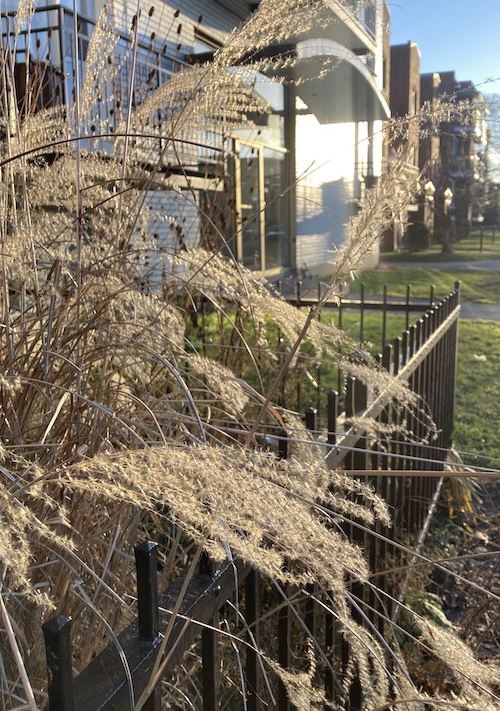
It was a complicated time and yet, as we all must, we were finding our way to a better fit while living in it and through it. It wasn’t like we could step out of life, solve all the stuff, and step back in. The breaking of more than a decade of harmful-to-us patterns and thinking, the loss of old ideas and activities that once defined us while nurturing the green shoots of new ones, the re-orienting towards a hopeful and realistic vision of our future - all of it had to happen in our day-to-day lives. While working, while raising and homeschooling the kids, while finding our place or unfinding our place in community and church.
All of this, the end of those particular adventuring years, our move to Montreal, the breaking point of the old constructs in our marriage and my faith (both of which constitute a huge part of my identity) started at the inflection point of our family’s Appalachian Trail thru-hike. That’s why when people ask me, “so what was it like to hike the Appalachian Trail”, I have to ask them, “how much time do you have?”
I wrote about finding my way through all that in 2 specific blog series’: The aforementioned Vocation, Marriage & Work series published in 2016 and An Evolving Journey of Faith published mostly in 2017.
Another related blog series The Reckoning, which is more about the sense of regret, loss, and failure that accompanied the post-adventure years, which happened to coincide with the self-doubt of raising teenagers, was published in 2019. Fun times, I tell you.
This is what writing is for me, a tool, a means to get through.
I write while I’m going through the thing. And it’s the writing that helps me find my way through. I uncover things. I seek to discover more things. Blogging is part of the process and is how I share the larger process going on.
In 2019 I did another discovery series. This time a collection of podcast interviews/conversations published to Patreon, back when I thought I might use the platform to build a reader-supported model for my writing. (PS. I intend to move all these to my blog, for easier access, but haven’t gotten around to it yet.)
Second Bloom was all about learning from the experiences of 8 other women to help me navigate my own journey into a new midlife vocation and career after investing the first couple decades of adulthood to homemaking, child raising, and homeschooling.
In the years following the crash, of what I’d hoped would be a working partnership with my husband in which I wouldn’t have to figure out where I was going because someone else would do that for me, I felt adrift.
This was why my husband encouraged me to “find myself”.
I had lost touch with the Renee of my childhood and young adult years. Lost my confidence and my fiery passion and convictions that my husband had known in me from our youth. Losing the pride and judgement that accompanied my youthful vigour was a good thing! But losing a chunk of my lifeforce wasn’t.
As for work outside the home, I didn’t know where I was going and I didn’t know how to get there. But I knew the commitments I had made when I became a mother and those were the guiding force in my life when I lost a lot of other signposts I had been depending on for years.
I had a clear vocation in motherhood, which for me included the monumental task of homeschooling, helping guide and support my kids into and through their post-secondary schooling, and securing the ground for their launch into young adulthood. This was and is a job, in and of itself.
These life processes, the writing, the commitments have all helped guide me to the place I am now, where I know what I know and know who I am, at this particular point of my life. Which most miraculously, includes the return of my self-confidence after having it plummet to rock bottom 6 years ago.
Grad school has been a Goddess send.
I remember the first time I spoke the idea out loud. It was September 2018 and I was hiking the southern half of the Vermont Long Trail with my parents, in celebration of their 45th Wedding Anniversary and 65th birthdays. My parents are born the same year, 1 month apart to the day. And they got married when they were 20. Hence, the 45th in their 65th.
That hike was my return to long distance hiking after the painful ending of the Appalachian Trail. It was a restorative time and a wonderful trip with my parents.
Had I previously spoken to Damien about grad school? I must have. But I don’t remember. What I do remember is telling my mom I felt the desire to pursue a Masters Degree. Even speaking about it with her, one of the safest people in my life, felt scary.
I feel vulnerable verbalizing ideas that I haven’t fully figured out. And especially expressing dreams I’m not sure will come true. Reality is such that lots of dreams won’t come true, but that doesn’t mean we can’t talk about them. In fact the only way a dream can move to a goal is by talking about it, at some point, with someone else.
And further, verbalizing our ideas is both how we figure out what we really believe and think, hone those thoughts and test them for truth, against the reality of other people’s beliefs, experiences, and knowledge.
I had already worked out that going to school was within the realm of possibility. Very rarely will I verbalize a dream in which I haven’t worked out at least some of the details.
I live in a city with amazing universities. The cost of education in Quebec is the cheapest in all of North America. I had an undergrad degree and good grades on my transcript. So lots of the “Where would I go?”, “Do I have the qualifications?”, and “How will I afford it?” type questions were mostly worked out.
Still, it felt like a reach for me. But desire was taking me there. And I had committed myself to pay attention to my desires, as part of the whole “find myself” project.
I don’t know exactly how it happened. Yes, I did my research. And I reflected. And I listened to my inner voice, followed my desire; yada, yada, yada. But those aren’t a guarantee of anything.
How then, did I land into a grad school program that took me from where I was, a bit broken, but on the path to recovery, helped me finish gluing the pieces of my cracked vessel back together again, and then filled me to overflowing with ideas that animate and energize me, but more importantly, have helped ground me in my life’s purpose in a way I could not have imagined or dreamed?
This is more than I had hoped for in going back to school. And it might very well be more than a lot of other people get out of the experience. I don’t really know.
How did this happen?
I think it happened because somehow the stars aligned in a convergence of my own life story/experience/history; the pandemic and our current political, economic, and social moment; my personality and the self-awareness work I had done prior to my studies; and the content and focus of my program. The alchemy of all that has inexplicably deepened my values, my purpose and my vocational path.
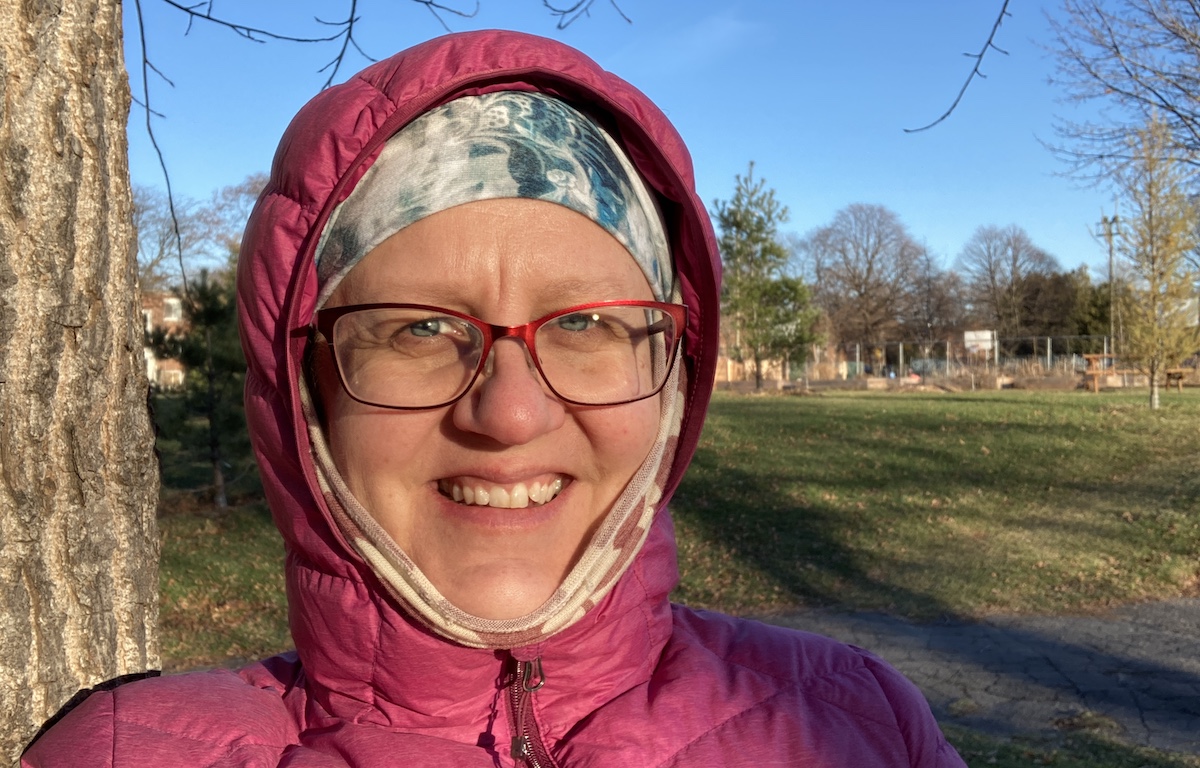
In choosing my first career as mother, homemaker, homeschooler, I was inherently rejecting a capitalist society’s accounting and apportioning of value. I would not have expressed it that way then. What I did say then is that I wanted the socializing forces of home and relationship with family to define my life and my children’s lives. And later I wanted relationship to define their education. I would say that same thing now.
I rejected the claims that said I should seek, and that I would find meaning by pursuing an outside-the-home career and especially in having equal earning potential as my husband. Maybe that source of meaning is true for some people. But what I wanted, from as young as 20 years old, was to find my meaning, purpose, and joy in my home and family. I wanted home to be the center of my world and the center of my children’s childhoods. That was my choice.
Through the eyes of some far-left feminists this is the result of some intransigent reactionary and internalized patriarchy at work in me. Insert expletive and deep eye roll here. I am educated enough now to play that word game and I can pit theory against theory. But I have no need to defend myself or my convictions with such combative means, because the feminist values of equality and choice, and standing against the oppression and exploitation of women and children, are just as much expressed in my choices as are the inherited traditional values that helped inform my decision.
I have lived into the consequences of that choice and I reap the rewards and benefits of two decades of relationship-building labour. What I have “achieved” in my life, in my relationships with my husband, children, and parents is more than I could have hoped for.
This relational goal and orientation is not because I have internalized the messages of patriarchy, but because care is one of my defining ethics and values. And the derision of such an ethic would be an actual internalization of the values of patriarchy, colonialism, capitalism, globalization and industrialization.
Like I have said many times in my writing, both before “becoming educating” and since, the option and privilege to not participate in the money economy made me dependant on someone else, my husband, to provide for my financial needs. And I in turn provided for our children’s needs, including their education and took on the labor of home and family management.
This dependency is anathema to both individualism and certain feminist thinking. But it is not anathema to a communal life where partners, families, comrades, and communities pool their resources, talents, interests, and skills for the functioning of the collective, “from each according according to their ability, to each according to their need”, to achieve the goals of the collective.
We had goals for the collective of our family and a division of labour, according to our own interest, skill, and desire, was the means to meet those goals.
The fact that the work that I contributed to that collective was not valued in a capitalist economy, though was absolutely crucial, along with all the other unpaid labour of women that keep the whole thing running, is not an indictment of me. It’s an indictment of the system.
In other words, an underlying sense of the not-enoughness of the vocation of motherhood and homemaking in our culture is not just because of the financial imperative to seek work outside the home. It’s an internalization of capitalist economy driven values that stand in contrast to values of communal care and well-being.
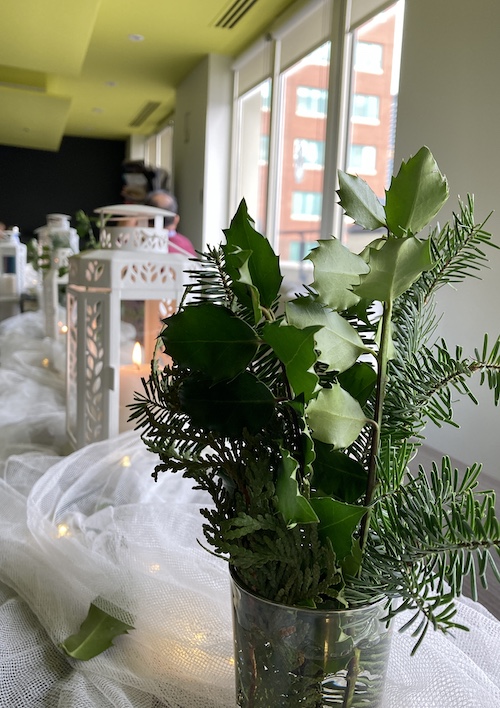
My mothering, my homemaking, my homeschool pedagogy was all underwritten by a set of mostly unarticulated values that I have been forced to unearth and articulate in my recent political series. How we envision life together, in families and communities, is our politics, and all of that is ultimately an expression of the values beneath.
Before going back to school I didn’t have all these frameworks, theories, and critiques to work with.
Instead I had disappointment and financial stress because my labour hadn’t contributed to our family coffers. A financial stress that was amplified when we lost the property we owned in Maine because of the fallout from the 2008 financial crisis.
I had a marriage in recovery from harmful (& heartfelt) beliefs inherited from childhood and carried into my adulthood.
I had the loss of a community from the natural growth process but also from an incidence of trauma that tore things apart.
I had an apartment full of teenagers who were doing the necessary work of separating from me and us, rightfully pushing back and against decisions we made about their upbringing.
I had “all this” while standing in the ruins of a de-constructed faith whose traditionalist narratives around family culture had once buttressed my decisions and given affirmation and value to my labour. An affirmation that now lay crumbled at my feet with the rest of it.
And what I didn’t have during any of this was a successful outside-the-home career in which to find a sense of accomplishment, ego affirmation, or status in social standing or bank balance.
So no shit, Sherlock, I had feelings of regret, loss, and failure. And my confidence was a little shaky.
Then I started grad school.
And I was introduced to a whole new language and frameworks for evaluating culture and society that explained not only big picture stuff but also my personal experience of values dissonance living in this culture. A disconnection that my religion had once explained for me, but was no longer sufficient to the task of explaining all that was wrong in the world and how to right it, especially since that religion had caused a lot of the damage. After the deconstruction, my spirituality and faith could explain only part of the picture, but not the whole picture, the way they once had.
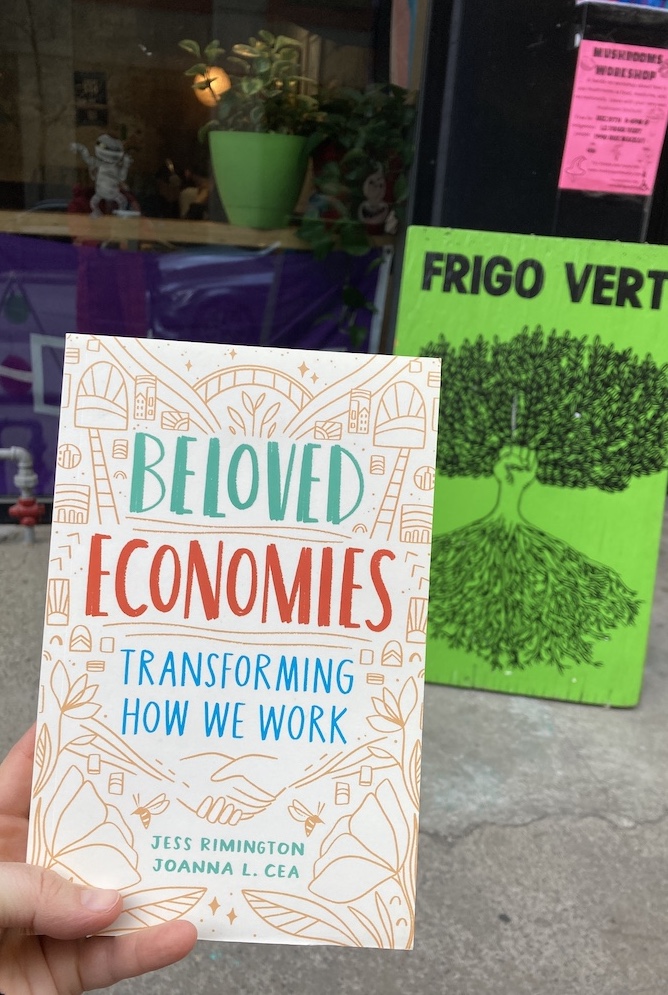
I haven't yet read, don't know if I can recommend, but I love the title!
I discovered academic research that validated my two decades of unpaid labour. I realized that there were whole fields of study dedicated to the ideas that I had cultivated, nurtured, and embodied in my mothering and homeschooling. Some really smart people had critiqued, analyzed, and synthesized these things.
I had simply lived them.
If I had been deeply nested in a community of people with similar values to my own I might not have needed this affirmation. But I had lost that community when I lost institutional religion. When I no longer held particular doctrinal beliefs that had been the portal to belonging, I lost the community. And I lost that micro-cultural affirmation and support.
Motherhood changed me. My commitment to building relationship with my children changed my pedagogy. It changed my theology. It changed my politics.
This is what relationality does. Our ideas are shaped, tweaked, broken, and re-built by the dynamic interplay of our being with the being of others in our relations. The more trust that is experienced in those relations, the more expansive the opportunity for growth.
My studies have given me back my confidence because they have affirmed my work. And they have showed me that the application of my values and experiences in the domains outside of the sphere of my family life often resides in radical theories and movements of change. So yeah, I’m not going to find resonance for who I am in the status quo. I never have.
In fact, the very emphasis I put on relationships and our interdependence within those relationships, is a radical proposition in modernity. Radical in both meanings of the word. In the original latin “radix” which means root, and in the contemporary political and social change meaning of the word.
It is this sense of being a radical that takes me right back to my early adulthood days when I was choosing a career path contrary to particular movements and discourse within feminism that devalued women’s unpaid labor. Movements that sought value and recognition for women in achieving equality of compensation instead of questioning and working to dismantle the constructs that devalued the work of planting, caring, tending, teaching, and nurturing in the first place.
For the record, we need equal compensation, but because we live under a capitalist money-driven economy we also need to raise awareness and recognition and fight for a different distribution of resources to better remunerate the typically unpaid and underpaid familial labour traditionally and predominantly done by women.
In my own awakening, it’s been the experiences and writing of Indigenous women and scholars and their explicit criticisms of capitalism and colonialism that have helped give language to the dissonance and discomfort I myself experience in this culture.
All this stirring of my soul has taken me back to my early adulthood which were also my birthing years, when I experienced and knew, in all my bones and tissues, the incomprehensible life-force that I held in my very body.
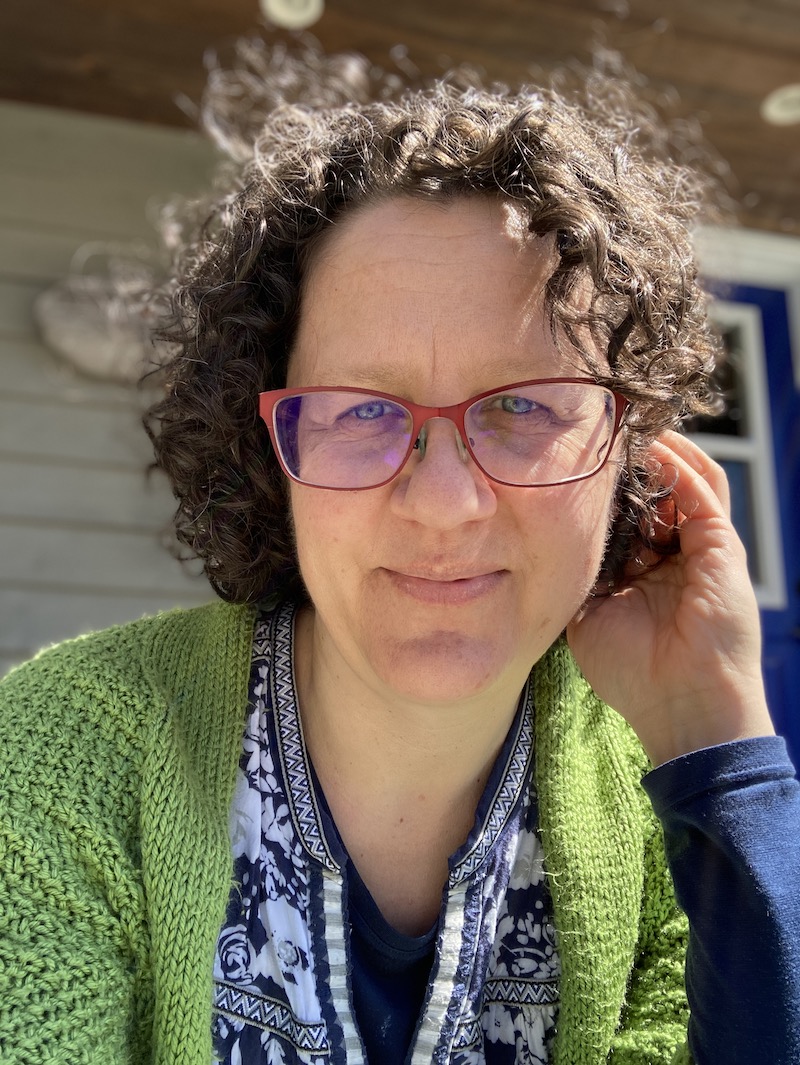
No wonder those were confident days. I was literally making new humans.
I knew something about myself and my values and my purpose. That self-knowledge of my power was handed down, without fanfare or explication, from my mother, grandmothers, aunties, and ancestors. It was a knowledge that would have to be tested and honed, lost and found again through the years of marriage, raising children, migrating, losing and recovering a religion.
This was an embodied knowledge of human growth and development, of home and family, a determination to care, nurture, and build a family culture of flourishing. It was a stand against the soul-sucking assaults of modernity and power wielded in exploitative and oppressive ways through detached bureaucracies and institutions.
Even with all this rah-rah of homemaking and mothering, I absolutely need something more than home and family to give my effort and energy to. In part because the doing of the tasks of home life cannot meet my intellectual needs. In part because the doing of those tasks in my very modern life (i.e.: I’m not a back-to-lander or a homesteader) do not fill my days. And in part because I live in the same economy you all do and I need to secure economic resources. And as we’ve already established, caring for people, specifically those within our households, doesn’t pay.
But the thing I’ve learned is that the kind of work that will energize me and will allow me fullest expression possible of my humanity will be rooted in the same ethics and values as my familial work.
When I started grad school I wasn’t exactly sure what the place for my ethics and values would be in the context of academia. As was very clear on my application resume I wasn’t bringing with me any “professional” experience upon which to stand.
What I’ve learned is that these values of motherhood and the experiences of building a family culture are the foundation and framing of who I am. They are my power. They are my strength. They are what I bring to the table. They are what I lead with.
Three years ago this coming February I wrote a piece called Own it. Like a mother.
Unexpectedly, my grad studies have helped me fully step into this intention.
I am on fire again.
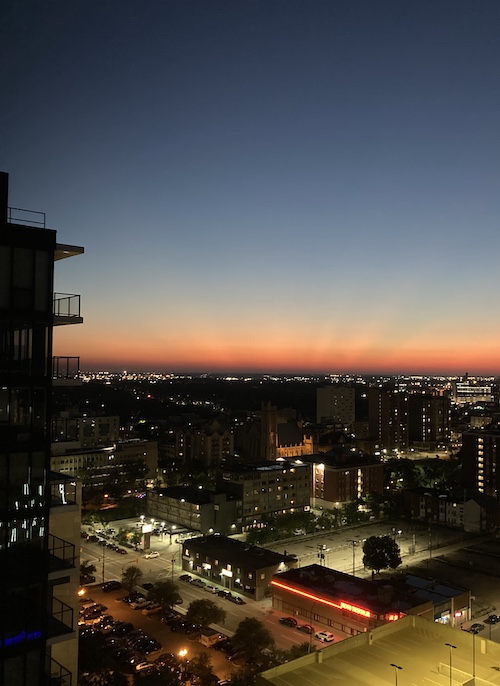
Winnipeg sunset, August 2022
The same way I was at 23 when I graduated from my undergrad and a month later gave birth to our first child in our bedroom, attended by a midwife, my husband, and my mother.
The same way I was when I made the choice to pour my life energies into three children born in 3 1/2 years. When my purpose was clear and I knew body, mind, and spirit what I was meant to be doing because it was right in front of me.
The care, well-being, and flourishing of humans, in families more specifically, in my family most specifically, is my purpose.
The resistance, rebellion, and revolution against any system in which power is wielded by authority to oppress, exploit, and diminish others, is also my purpose. I have been broken and re-membered as I’ve dismantled those authorities in my own life. I’ve fought against the exploitation of myself by power systems. I’ve divesting from and refused to engage in fear-based, manipulative power against others, especially my children.
I literally had to lose my religion to find my way here. But what I didn’t lose was the relationships and their engendered responsibilities that define my identity. It was my relationships that held me in the tumult.
And so, the building of families, comrades, communities, people working together for the flourishing of all is my purpose. And the way I will work to achieve this purpose is in my commitment to personal growth and non-exploitative relationship building, the same way I always have.
I don’t want to climb to the top of the dominant structure underwritten by beliefs and philosophies that go against everything I value and hold true.
I want to subvert it, like I always have.
I still have no idea what kind of paid work this will lead me to. If you have ideas please shoot me an email! renee at tougas dot net.
But what I do have is the fire and confidence of purpose that I had lost. Knowing I lost it once adds a large dose of necessary humility to my process. But it’s this ability to reflect and course correct, even if it’s precipitated by a Humpty Dumpty style fall, that are the true gifts of living.
And so where I end this reflective birthday piece and each day is with gratitude for these gifts.
What an amazing opportunity I’ve been given. What an amazing life.
There is a second part to this story, which I intend to gift myself the writing time to uncover in the post-Christmas New Year’s reflection period.
Where this post talks about vocation, motherhood, marriage, and faith to answer the existential question who am I? That next post will look at family/heritage, migration, and home to answer where do I belong?
Stay tuned.
Subscribe to my mailing list for free, to get that next post delivered directly to your inbox.
Filed Under
Part of Series
Resource Library
You can subscribe to comments on this article using this form.
If you have already commented on this article, you do not need to do this, as you were automatically subscribed.
